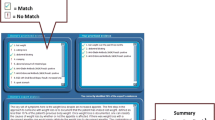Abstract
Affective and functional roles of counterfactual thoughts were explored in this two-phase mixed-method study. In Phase I participants recalled disappointing academic events, generated counterfactuals (i.e., what ifs) in response to their performance, and then rated their affect, attribution, and academic locus of control. A statistically significant relationship, r=−0.47, was revealed between students' internal locus of control and the number of counterfactuals they generated. That is, a high sense of personal responsibility and control corresponded to a high number of counterfactuals. In Phase II of the study, a computerized program was utilized in which participants completed a series of anagrams after selecting specific parameters of the task. After feedback, students suggested alternate behaviors that would have changed their anagram scores. Students who compared their performance to a better performance reported lower affect but yielded a greater improvement in scores on a subsequent anagram task than students who compared their performance to a poorer performance. Findings with this sample of high school students were congruent with findings based on college students. Implications are discussed.
Similar content being viewed by others
References
Arkin, Robert & Baumgardner, Ann (1985). Self-handicapping. In J. Harvey & G. Weary (Eds), Attribution: Basic issues and applications. Orlando, FL: Academic Press.
Benham, J. Michelle (1995). Fostering self-motivated behavior, personal responsibility, and internal locus of control in the school setting (ERIC Document Reproduction Service, No. ED386 621).
Coffee, Amanda & Atkinson, Paul (1996). Making sense of qualitative data. London: Sage Publications.
Folger, Robert, Rosenfield, David, & Robinson, Thomas (1983). Relative deprivation and procedural justifications. Journal of Personality and Social Psychology, 45, 268–273.
Gavanski, Igor & Wells, Gary (1989). Counterfactual processing of normal and exceptional events. Journal of Experimental Social Psychology, 25, 314–325.
Gilhooly, Ken & Johnson, Chris (1978). Effects of solution word attributes on anagram difficulty: A regression analysis. Quarterly Journal of Experimental Psychology, 30, 57–70.
Gilovich, Thomas, Medvec, Victoria, & Chen, Stephen (1995). Commission, omission, and dissonance reduction: Coping with regret in the “Monty Hall” problem. Personality and Social Psychology Bulletin, 21, 182–190.
Goodhart, David (1986). The effects of positive and negative thinking on performance. Journal of Personality and Social Psychology, 51, 117–124.
Harris, Paul, German, Tim, & Mills, Patrick (1996). Children's use of counterfactual thinking in causal reasoning. Cognition (Vol. 61). Amsterdam: Elsevier Science.
Hoch, Stephen (1985). Counterfactual reasoning and accuracy in predicting personal events. Journal of Experimental Psychology: Learning, Memory, and Cognition, 11, 719–731.
Hofstadler, Douglas (1979). Gödel, Escher, Bach: An eternal golden braid. New York: Vintage Books.
Hofstadler, Douglas (1985). Metamagical themas: Questing for the essence of mind and pattern. New York: Basic Books.
Janoff-Bulman, Ronnie (1979). Characterological versus behavioral self-blame: Inquiries into depression and rape. Journal of Personality and Social Psychology, 37, 1798–1809.
Kahneman, Daniel & Tversky, Amos (1982). The simulation heuristic. In D. Kahneman, Daniel Slovic & Amos Tversky (Eds.), Judgement under uncertainty: Heuristics and biases. Cambridge: Cambridge University Press, pp. 201–208.
Köller, Olaf & Möller, Jens (1995). Counterfactual reasoning after scholastic success and failure. German Journal of Educational Psychology, 9, 105–110.
Lipe, Marlys (1991). Counterfactual reasoning as a framework for attribution theories. Psychological Bulletin, 109, 456–471.
Markman, Keith, Gavanski, Igor, Sherman, Steven, & McMullen, Matthew (1993). The mental simulation of better and worse possible worlds. Journal of Experimental Social Psychology, 29, 87–109.
Medvec, Victoria & Savitsky, Kenneth (1997). When doing better means feeling worse: The effects of categorical cutoff points on counterfactual thinking and satisfaction. Journal of Personality and Social Psychology, 72, 1284–1296.
Niedenthal, Paula, Tangney, June P., & Gavanski, Igor (1994). “If only I weren't” versus “If only I hadn't”: Distinguishing shame and guilt in counterfactual thinking. Journal of Personality and Social Psychology, 67, 585–595.
Roese, Neal (1994). The functional basis of counterfactual thinking. Journal of Personality and Social Psychology, 66, 805–818.
Roese, Neal (1997). Counterfactual thinking. Psychological Bulletin, 121, 133–148.
Roese, Neal & Olson, James (1993). Self-esteem and counterfactual thinking. Journal of Personality and Social Psychology Bulletin, 65, 199–206.
Roese, Neal & Olson, James (1995). What might have been: The social psychology of counterfactual thinking. Mahwah, New Jersey: Lawrence Erlbaum Associates.
Roese, Neal & Olson, James (1996). Counterfactual thinking: The intersection of affect and function. In M. Zanna (Ed.), Advances in experimental social psychology (Vol. 29). San Diego: Academic Press.
Shaver, Kelly & Drown, Debra (1986). On causality, responsibility, and self-blame: A theoretical note. Journal of Personality and Social Psychology, 50, 697–702.
Sherman, Steven & McConnell, Allen (1995). Dysfunctional implications of counterfactual thinking: When alternatives to reality fail us. In N. Roese & J. Olson (Eds.), What might have been: The social psychology of counterfactual thinking. Mahwah, New Jersey: Lawrence Erlbaum Associates.
Sherman, Steven & McConnell, Allen (1996). The role of counterfactual thinking in reasoning. Applied Cognitive Psychology, 10, S113-S124.
SPSS (1996). Statistical program for the social sciences, release 7.0. Chicago: SPSS.
Strathman, Alan, Gleicher, Faith, Boninger, David, & Edwards, Chris (1994). The consideration of future consequences: Weighing immediate and distant outcomes of behavior. Journal of Personality and Social Psychology, 66, 742–752.
Taylor, Samuel (1991). Asymmetrical effects of positive and negative events: The mobilization-minimization hypothesis. Psychological Bulletin, 110, 67–85.
Teigen, Karl H. (1995). How good is good luck? The role of counterfactual thinking in the perception of lucky and unlucky events. European Journal of Social Psychology, 281–302.
Thornton, Bill (1984). Defensive attribution of responsibility: Evidence for an arousal-based motivation bias. Journal of Personality and Social Psychology, 46, 721–734.
Trice, Ashton (1985). An academic locus of control scale for college students. Perceptual and Motor Skills, 61, 1043–1046.
Whittier, John G. (1898). The works of John Greenleaf Whittier, Volume 1. New York: Houghton, Mifflin.
Author information
Authors and Affiliations
Rights and permissions
About this article
Cite this article
Reichert, L.K., Slate, J.R. Reflective learning: the use of “if only ...” statements to improve performance. Social Psychology of Education 3, 261–275 (1999). https://doi.org/10.1023/A:1009643025983
Issue Date:
DOI: https://doi.org/10.1023/A:1009643025983




